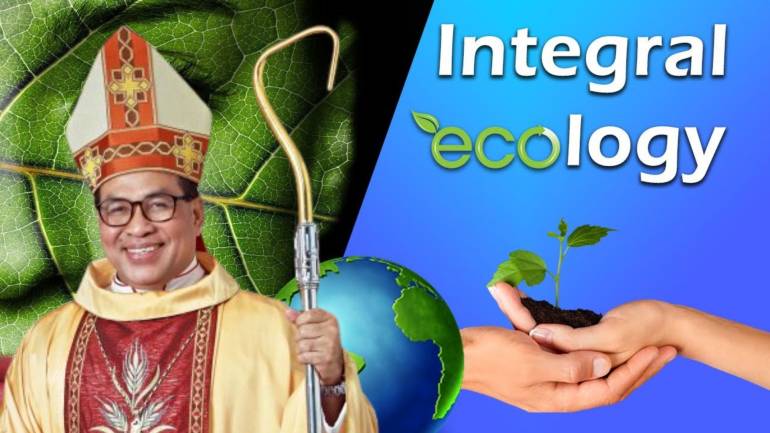Indonesian Bishop urges the people to become new creation: Towards Universal Brotherhood

In his Easter pastoral letter, the Indonesian Bishop of Ruteng, Bishop Siprianus Hormat, urges the congregation to become a new creation toward universal brotherhood.
“The world in which we live is crucial,” wrote the bishop in his letter. “The critical ecological crisis has become a massive humanitarian crisis. "Today's vast natural damage, if not immediately addressed, will threaten human survival on this earth," he continued.
Furthermore, tremendous air, sea, land, and water pollution is increasing. Waste, particularly plastic and food waste, is accumulating everywhere. Severe environmental damage occurs in forests, agricultural land, coral reefs, beaches, and the ozone layer. However, the global warming crisis, manifesting in extreme weather changes, is the most concerning.
In the background of these ecological crises, in 2024, the Diocese of Ruteng is proclaiming the year of "Integral Ecology" to realize God's love that permeates humanity while embracing all of creation.
This ecological year comes with themes of harmony, pedagogy, and prosperity. Human greed has damaged the originally "good" harmony of human relations with the entire creation.
Bishop Hormat, in his letter, invites all of us to change our mindset to be integral and harmonious, which sees the universe, humans, and the Creator as being in an interconnected network and forming a universal family.
This mindset shift necessitates ecological pedagogy. The integral ecology movement demands repentance and a lifestyle change. “We need to change our consumptive and hedonistic lifestyle to one that is friendly to the environment," he urged.
The change can start with a frugal lifestyle, which is in line with what Pope Francis said about an integral ecology consisting of "simple daily actions that break the logic of violence, exploitation, and selfishness."
These small daily ecological movements can become social love, which contributes to the realization of Christian spirituality's global brotherhood. "The ability to be happy with little things" is a way back to the simplicity of life to "appreciate the small things, be grateful for opportunities that life has to offer, without attachment to what we have or sadness over what we don't have.” This will establish “a prophetic and contemplative lifestyle capable of deep enjoyment of joy without being obsessed with consumption.”
“The ecological movement that we will carry out in 2024 is not just a social action. But all of these are pastoral and faith movements. "A harmonious relationship with nature should lead us to an encounter with the divine," stressed Bishop Ruteng in his letter.
Starting his letter, the bishop of Ruteng strengthened the congregation with an angel's affirmative greeting to the women at Jesus' tomb, who were entangled in deep suffering and anxiety, "Don't be afraid!"
The word of Bishop affirmation is based on the current living conditions, which are "not in good" stage. People struggle with classic problems experienced by every family: daily living needs, children's education costs, and health matters. There are rising prices for rice and other necessities, along with serious environmental crises and extreme weather changes.
In this murky life situation, he invites us all to draw clear strength from the well of Christian hope and faith: Don't be afraid! (Mark 16:6). Because "whoever hopes in God will not be disappointed."
Bishop Hormat closed his letter with an invitation to respond loudly and joyfully with the cry of “thanks be to God!” when Easter candles are paraded through: This is a cry of joy and a firm commitment to the mission to renew the world and care for the universe as a beautiful and harmonious Father's home for everyone.
Whoever is united with Christ in the Easter event, "he/she is a new creation: The old has passed away, indeed, the new has come. Come, united with all creatures, let us sing melodiously to glorify God: Hallelujah, Laudato si! - EM
Radio Veritas Asia (RVA), a media platform of the Catholic Church, aims to share Christ. RVA started in 1969 as a continental Catholic radio station to serve Asian countries in their respective local language, thus earning the tag “the Voice of Asian Christianity.” Responding to the emerging context, RVA embraced media platforms to connect with the global Asian audience via its 21 language websites and various social media platforms.














